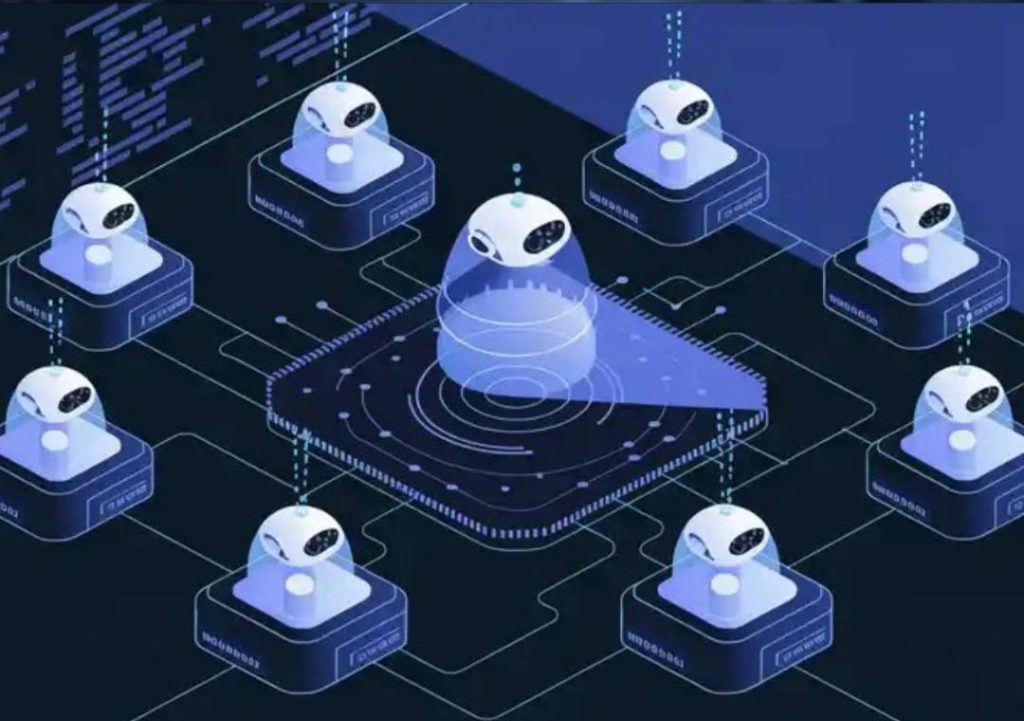
From Chaos to Coordination: Multiagent Systems Take Charge
In today’s fast-paced world, complexity is the new norm. Whether it’s managing a bustling city, optimizing a production line, or coordinating a fleet of autonomous vehicles, decision-making processes often involve multiple entities working together. The challenge lies in ensuring these entities – or agents – work in harmony, rather than creating chaos. This is where multiagent planning comes into play, empowering each agent to act autonomously while maintaining strategic communication to achieve a common goal.
The Problem of Coordination
Imagine a busy city highway during rush hour. Cars, buses, and trucks are moving in every direction, each with its own route and schedule. Without a centralized authority, the likelihood of accidents and congestion increases. Similarly, in a smart factory, multiple machines and workers must work together to produce goods efficiently. If not coordinated, production lines can come to a standstill, resulting in costly delays and lost revenue.
The Power of Multiagent Planning
Multiagent planning is a subfield of artificial intelligence (AI) that focuses on coordinating the actions of multiple agents to achieve a common goal. By giving each agent the autonomy to make decisions, while also ensuring strategic communication, multiagent planning enables complex systems to function seamlessly.
In a multiagent system, each agent is equipped with its own goals, knowledge, and decision-making capabilities. Through communication and negotiation, agents share information and coordinate their actions to achieve a collective goal. This approach is particularly effective in environments where uncertainty and unpredictability are inherent, such as in traffic management or supply chain logistics.
Key Components of Multiagent Planning
- Autonomy: Each agent has the ability to make decisions and take actions independently, without the need for centralized control.
- Communication: Agents share information and coordinate their actions through communication protocols, such as message passing or negotiation.
- Coordination: Agents work together to achieve a common goal, taking into account the actions and goals of other agents.
- Adaptability: Multiagent systems can adapt to changing circumstances, such as traffic congestion or equipment failures.
Real-World Applications of Multiagent Planning
- Traffic Management: Multiagent planning can be used to optimize traffic flow and reduce congestion by coordinating traffic signals, lane management, and traffic routing.
- Smart Factories: In a smart factory, multiagent planning enables machines and workers to coordinate their actions, ensuring efficient production and minimizing downtime.
- Autonomous Vehicles: Multiagent planning can be used to coordinate the actions of autonomous vehicles, such as self-driving cars or drones, to achieve a common goal, such as navigating through a crowded city.
- Supply Chain Logistics: Multiagent planning can optimize the flow of goods and services by coordinating the actions of multiple agents, including suppliers, manufacturers, and distributors.
Benefits of Multiagent Planning
- Improved Efficiency: Multiagent planning can reduce waste and improve productivity by optimizing the coordination of multiple agents.
- Increased Flexibility: Multiagent systems can adapt to changing circumstances, ensuring continued operation even in the face of unexpected events.
- Enhanced Decision-Making: By giving each agent the autonomy to make decisions, multiagent planning can lead to more informed and effective decision-making.
- Reduced Complexity: Multiagent planning can simplify complex decision-making processes by breaking them down into smaller, more manageable components.
Conclusion
In the complex world we live in, multiagent planning is a game-changer. By empowering each agent to act autonomously while maintaining strategic communication, multiagent planning enables complex systems to function seamlessly. From traffic management to smart factories, multiagent planning has the potential to revolutionize the way we approach decision-making. As AI continues to evolve, multiagent planning will play an increasingly important role in shaping the future of many industries.
Source
https://www.growthjockey.com/blogs/multiagent-planning-in-ai






